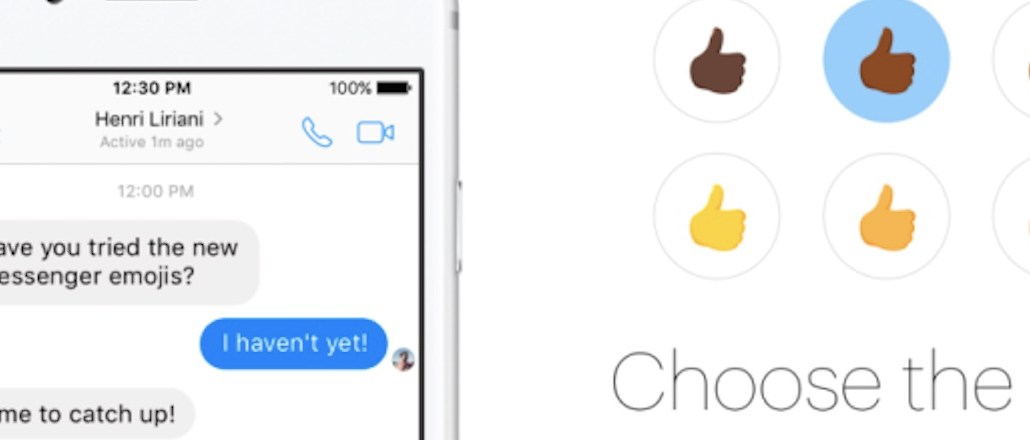
Facebook’s emoji for Messenger are becoming more diverse and less sexist.
Tomorrow, the chat app is rolling out a 1,500 new emojis on the chat app including the ability to let users customize the emojis’ skin color, placing it in line with Unicode Consortium’s standards.
Other changes include new red-headed emojis and more female police officers and doctors and more. That move comes a month after a group of Google employees pushed the Unicode Consortium to make the emojis more gender inclusive in its next update.
“We’re diversifying the genders to create a more balanced mix that’s more representative of our world,” Facebook said.
Technically, the change also means Facebook Messengers will now see a uniform set of emojis; prior to this, the emojis appeared inconsistently and would often revert to the emojis seen on their operating systems.
It’s the latest enhancement to Facebook Messenger, which has 900 million monthly users, including debuting new chat bots to ensure people spend more time (and money) within the app.
More in Media

Meta AI rolls out several enhancements across apps and websites with its newest Llama 3
Meta AI, which first debuted in September, also got a number of updates including ways to search for real-time information through integrations with Google and Bing.

Walmart rolls out a self-serve, supplier-driven insights connector
The retail giant paired its insights unit Luminate with Walmart Connect to help suppliers optimize for customer consumption, just in time for the holidays, explained the company’s CRO Seth Dallaire.

Research Briefing: BuzzFeed pivots business to AI media and tech as publishers increase use of AI
In this week’s Digiday+ Research Briefing, we examine BuzzFeed’s plans to pivot the business to an AI-driven tech and media company, how marketers’ use of X and ad spending has dropped dramatically, and how agency executives are fed up with Meta’s ad platform bugs and overcharges, as seen in recent data from Digiday+ Research.





